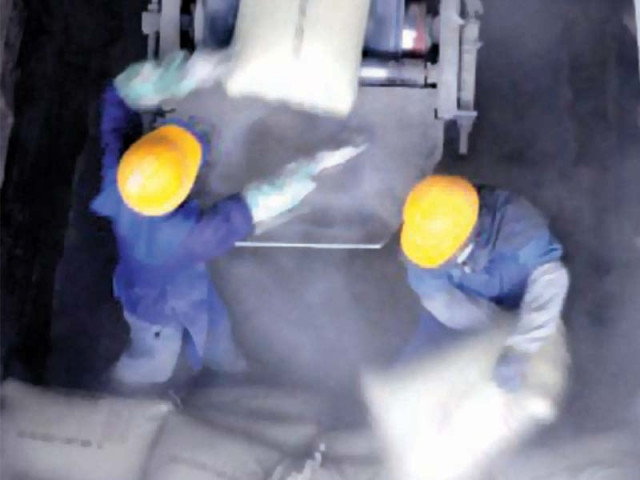Off the hook: Cement prices rising without any check
Government inaction, lengthy judicial process blamed for rate hike.

As cement prices skyrocket apparently without any genuine contributing factor, consumers are facing the brunt of inaction by successive governments and cumbersome judicial processes that have let industry tycoons off the hook despite attempts by the anti-trust watchdog to restrict them.
A 50kg cement bag was being sold at Rs415 to Rs420 in retail on Thursday compared to the price of Rs340 just before Eid holidays. The sudden increase in prices has apparently gone unnoticed in government circles.
“The rise in prices is the outcome of an informal agreement between cement manufacturing companies that have decided to sell the commodity at unified rates,” claimed Farooq Ali, a cement retailer. Before such an agreement, there was a price difference of Rs10 to Rs15 per bag among various brands but now all are being sold at unified rates, he said.
Ali claimed that just before Eid he received a message from a cement manufacturing company that prices would be increased after holidays.
Office-barriers of All Pakistan Cement Manufacturers Association were not available for comments.
Ali’s statement makes it a ripe case for intervention by the anti-trust watchdog. But will such an intervention work for the benefit of consumers, probably not, keeping in view past examples?
Since 1992, the anti-trust watchdog has taken action against cement manufacturers on four occasions. However, in all these cases it could not curb activities of cement barons because of the industry’s influence with successive governments and lengthy judicial processes.
In 1992, the Monopoly Control Authority (MCA), the predecessor of the Competition Commission of Pakistan (CCP), made recommendations to discourage cartelisation in the cement industry and suggested opening of retail shops in major cities by the State Cement Corporation and printing of retail prices on cement bags.
In 1998, an inquiry by the MCA revealed that cement manufacturers had formed a cartel. However, its efforts and penalties were challenged in the Lahore High Court.
According to CCP documents, even though the case had merit, the government intervened and reached a compromise with the cement manufacturers.
In May 2003, the MCA took cognisance of simultaneous price increases by all cement manufacturers and issued an order in November 2005. However, this order was reversed by the Lahore High Court, observing that mere parallel price movement, without additional evidence or “plus factors,” was insufficient to prove the existence of a cartel, documents showed.
After the establishment of the CCP, more evidence of cartel-like behaviour on the part of the cement manufacturers association prompted the watchdog to search and collect evidence from the association’s office in April 2008.
Importantly, the evidence collected included a marketing arrangement between cement companies in May 2003. The agreement contained clauses which fixed quotas for production and supply in order to maintain desired and targeted price levels.
In August 2009, after holding a hearing, the CCP imposed a penalty of 7.5 per cent of turnover in case of each member undertaking based on the last annual account statements. The association itself was fined a maximum of Rs50 million. The cumulative figure came to Rs6.3 billion. However, the cement manufacturers went to court and the case has been pending in the Supreme Court for the last one year and in the Lahore High Court for two years.
“Had the courts decided the case, such increases in cement prices would not have been possible,” said Rahat Kaunain Hasan, chairperson of CCP.
Published in The Express Tribune, September 23rd, 2011.



















COMMENTS
Comments are moderated and generally will be posted if they are on-topic and not abusive.
For more information, please see our Comments FAQ